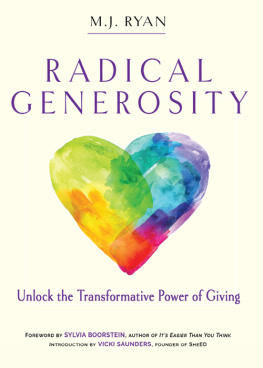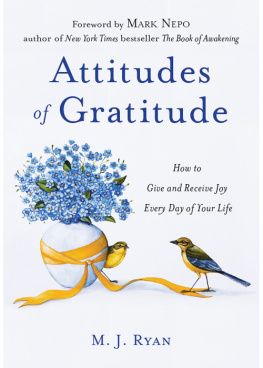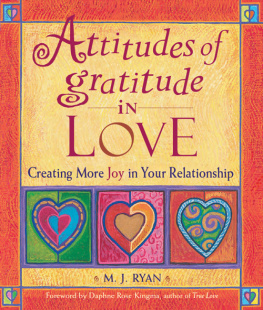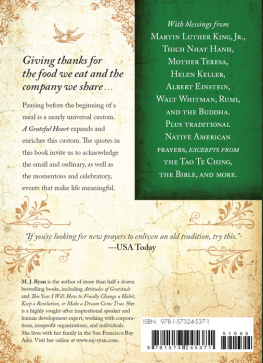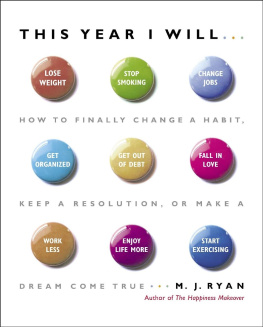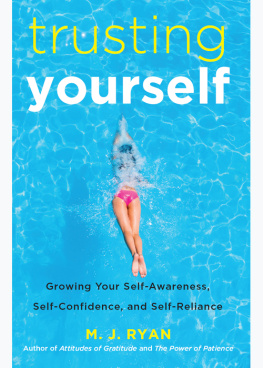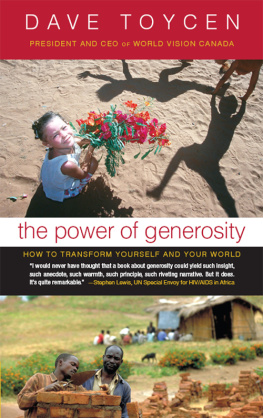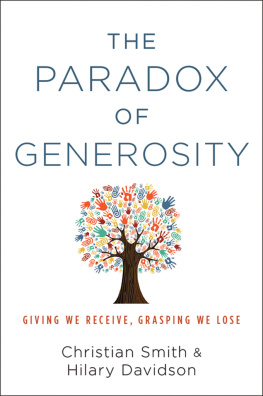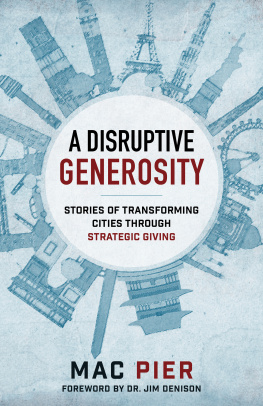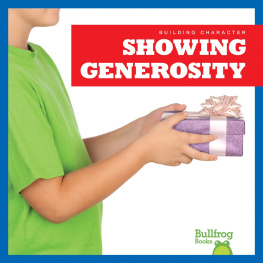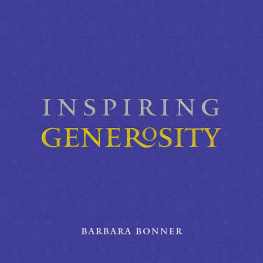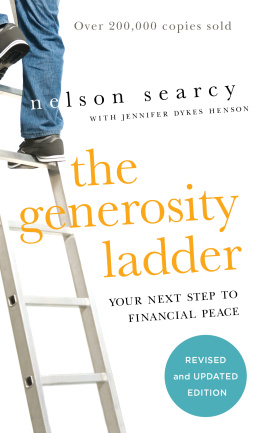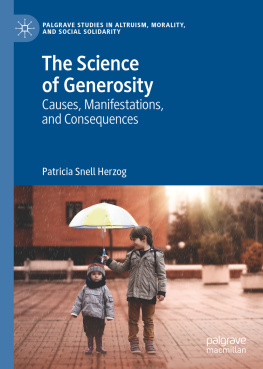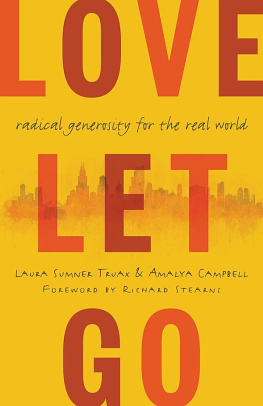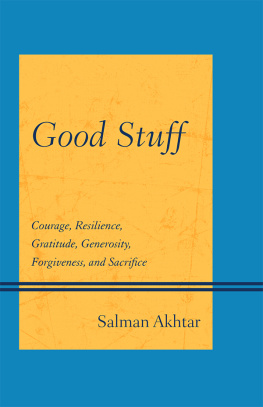

This edition first published in 2018 by Conari Press, an imprint of
Red Wheel/Weiser, LLC
With offices at:
65 Parker Street, Suite 7
Newburyport, MA 01950
www.redwheelweiser.com
Copyright 2018 by M. J. Ryan
Foreword copyright 2000, 2018 by Sylvia Boorstein
Introduction copyright 2018 by Vicki Saunders
All rights reserved. No part of this publication may be reproduced or transmitted in any form or by any means, electronic or mechanical, including photocopying, recording, or by any information storage and retrieval system, without permission in writing from Red Wheel/Weiser, LLC. Reviewers may quote brief passages. Previously published in 2000 as The Giving Heart by Conari Press, ISBN 1-57324-521-6.
Cover design by Kathryn Sky-Peck
Cover illustration by iStock.com
Interior by Deborah Dutton
Typeset in Janson Text LT Std, Trade Gothic LT Std, and FB Californian
Printed in Canada
MAR
10 9 8 7 6 5 4 3 2 1
www.redwheelweiser.com/newsletter
In honor of all my teachers of the heart,
particularly my father
We make a living by what we get, but we make a life by what we give.
NORMAN MACESWAN
Contents
CHAPTER 1
Opening Our Hearts and Hands
CHAPTER 2
The Gifts of Radical Generosity
CHAPTER 3
The Attitudes of Radical Generosity
CHAPTER 4
The Practices of Radical Generosity
CHAPTER 5
An Ever-Expanding Spiral
Foreword
In 1990, James Baraz and I traveled to India with some of our friends to visit the venerable Advaita teacher Sri H. W. L. Poonja in Lucknow. Every day for three weeks we traveled (on three-wheeled taxis, then pedal-rickshaw, then on foot) to arrive in time for morning darshan (teachings) with Poonjaji. We sat squeezed in close to each other on the floor of Poonjaji's small living room, along with perhaps twenty other students from all over the world. Poonjaji sat on a raised platform in the front of the room and talked and taught and laughed for hours, including each of us, one by one, in dialogue. We loved it. And at the end, Poonjaji agreed to see James and me in a private interview.
What do you teach? he asked.
James answered, We teach Mindfulness and Metta, and we specifically emphasize dana (generosity).
There is no such thing as generosity, Poonjaji said. (James and I exchanged glances that said, Uh-oh! Have we just started to present ourselves and done it wrong?)
No such thing at all, Poonjaji continued. There is only the arising of need and the natural impulse of the heart to address it. If you are hungry, and your hand puts food in your mouth, you don't think of the hand as generous, do you? If someone in front of you is hungry, and you put food in their mouth, it's the same, isn't it?
James and I talked afterward. Maybe he's right, I said. Let's think this through. When I put away my winter clothing, I think, This I didn't wear at all: Salvation Army. This I wore a little bit. Hmmm. I could save it; I could give it to the Salvation Army. I'll give it away! Isn't that generosity?
Maybe it's mindful-awareness-of-the-presence-of-lust or mindful-awareness-of-the-absence-of-lust, James said. No one who is generous.
Hmmm, I thought. I've continued to think about it for ten years.
I think there is no one who is generous, but there is generosity. Generosity is a habit of mind, a tendency, a capacity. It is the antidote for lust. It enables the mind to relax when it gets tied in knots of clinging. It conditions thoughts like, Maybe I don't need this, and Probably I'll feel happier sharing. It does create happiness. When we feel we have enough, when we feel satisfied, when we feel, My cup is brimming, we are unafraid. We are at ease. We are happy!
The Buddha named Generosity as the first of the Ten Paramitas (Perfected Qualities) of an enlightened mind. He suggested that people begin their conscious cultivation of the Paramitas with the practice of Generosity because it is the simplest. Everyone, he said, has something they could give away, and the act of giving brings gladness and joy to the mind. I was encouraged when I heard about cultivating Paramitas. It meant to me that I didn't need to wait until after enlightenmentif, and whenever, that might happento manifest these lovely qualities. And I was thrilled to hear accounts of many, many people, in the time of the Buddha, who became completely enlightened just by hearing him speak. The written accounts usually end with the phrase and their minds, through not clinging, were liberated from taints. They had generous minds. They let go of their old views. They gave themselves the gift of freedom.
I also understand the nine other Paramitas, those that follow Generosity in the traditional list, as elaborated forms of Generosity. They are all gifts. Morality gives the people we meet the gift of safety and gives us what the Buddha called the bliss of blamelessness. Renunciation gives us the gift of a calmed-down lust system, which moves us to cherish and appreciate what we already have. When we practice Restraint, we give ourselves the gift of self-confidence, the assurance that our impulse system will not take off on its own. When we are Patient, we give ourselves the gift of reflection and wise choice. When we are Honest, we give ourselves and the people with whom we are honest the gift of intimacy. When I give myself the gift of Energyby taking quiet time in my days, retreat time in my life, bicycle time for my bodyI reconnect with what I know to be true. The energy of that reconnection sustains my relationships with the people I meet.
If I am able to love and forgive myselfnot always easyI will be able to be a gift of kindness to anyone I meet. When I practice Equanimitymaking my mind still enough and wide enough and balanced enough to hold the whole universe of stories with the Wisdom that sees them as conditioned links in a lawful cosmos of connectionsI am able to cry hard and laugh loud and feel whole.
Poonjaji was right about no one being generous. When I feel whole, when I don't feel needy, I forget myself. I share more. I become kinder. In the end, Generosity becomes the great Act of Kindness that sustains the world.
My grandfather lived with my family for some years when he was in his middle nineties. The story he liked most to tell, when people asked him how he liked living with us, was one in which Smokey, our very friendly old Labrador retriever, had once again gotten through the gate and made his way to the grade school three blocks away. The children there loved him, and the teachers used him as a therapy for children who had dog fears, but the Humane Society came by every morning and picked up all dogs off leashes, and Smokey had been arrested many times.
The school called me, my grandfather would say, and told me, Smokey is here. Come quickly before the Pound comes. So I rushed to school as fast as I could with the leash, and the bell for the end of school rang just as Smokey and I were leaving. So, Emily walked with us.
Emily, my youngest child, was eight at the time. My grandfather was ninety-four.
He continued, We had just started walking when suddenly it started to rain. Emily took off her raincoatat that point in the story my grandfather always started to cryand said, Here, Grandpa. You wear this.
That was the story he told most. Generosity stories, kindness stories, are the ones we all
Next page
